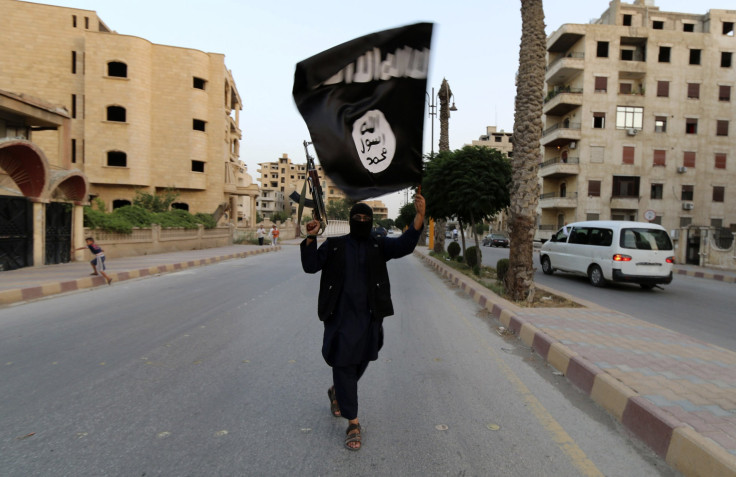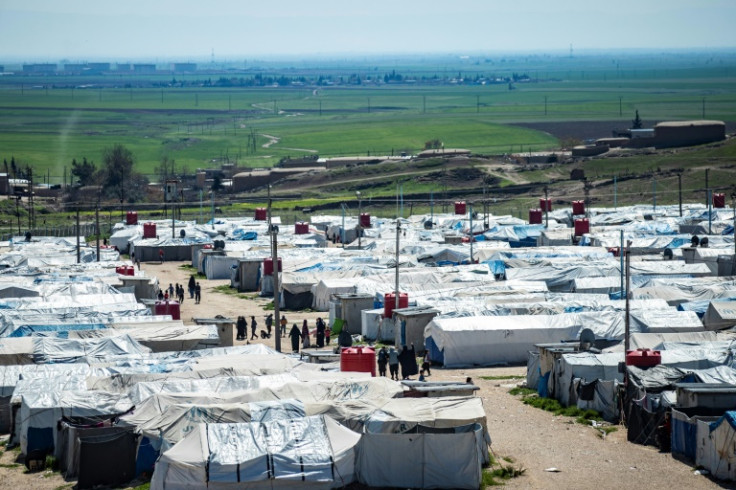ISIS Women Accused Of Using Boys As Young As 13 To 'Impregnate Them'

KEY POINTS
- Two boys told a rehab center staff they were forced by ISIS women to have sex
- A guard of Camp al Hol said at least ten boys were involved in the sex ring
- A boy in another detention camp landed in hospital after being given a Viagra-like substance
Two boys accused female members of the Islamic State terrorist organization of forcing them and other teenagers to impregnate detained women.
According to The Daily Beast, Ahmet, 13, and Hamid, 14, told the staff of the newly-opened Syrian state-run Orkesh rehabilitation center about their dire situation at Camp al Hol, a detention center housing approximately 8,000 foreign ISIS-affiliated women and children.
The two boys asked a guard of the detention center to help them get out of the facility after they were forced to have sex with ISIS women.
"We are being forced to have sex with the ISIS women, to impregnate them," Ahmet and Hamid reportedly told a Camp al Hol guard, according to Syrian Democratic Forces (SDF) officials.
"Can you get us out of here?" the two boys asked the camp guard.
A rehab center staff said one of the boys told them he was forced to have sex with 8 ISIS women.
Syrian militia officials said the ISIS women in the detention facility told the teenagers they wanted to get pregnant to increase the population of the terrorist group. The women believed that ISIS would be re-established when the combatants got out of the detention camps.
A guard of the detention camp said at least ten boys were involved in the sex ring. Some of the teenagers were rescued by SDF after they found them hidden by the women in underground tunnels.
There is no available data on how many women are pregnant inside the camp, but according to Syrian intelligence, the detention facilities said there are many cases.
The report noted that while ISIS men are jailed separately from the women, some pregnancies may have been caused by illicit relationships with guards.
Some of the ISIS women in the camp also did not notify official doctors regarding their pregnancies and only depended on their fellow detainees, who were doctors and nurses.
It was also a similar situation in Camp al Roj. Authorities there said a boy was rushed to hospital after being forced to have sex with women and provided with a Viagra-like substance to make him perform.
Some mothers in the camp begged the security authorities to take their sons to rehabilitation centers.
At rehabilitation centers, young teenagers enjoy playing sports such as football and participate in group counseling sessions.
The report noted that in the Orkesh rehab center, the rescued teenagers undergo counseling to process their trauma and emotional distress while preventing them from being influenced by ISIS's ideology.
"We don't dig deep in the beginning. We want to give them time and not get in over our heads in dealing with such traumas," a counselor at the rehab center said.
A U.N. report criticized the method by how adolescent boys are being taken from their mothers inside the camps while also expressing concern that the teenagers may be subjected to sale, exploitation and abuse.
But Syrian authorities defended their actions, arguing that they told the boys' mothers ahead of time where their sons would be taken. The mothers were also asked to surrender their sons voluntarily, but only four complied. While the remaining boys were taken forcibly, they could still communicate with their mothers through supervised telephone contact.
While the teenagers are being detained along with their mothers in Syrian camps following the territorial defeat of ISIS in 2019, the U.N. Convention on the Rights of the Child stated that the detention of a child should only be a measure of last resort and the shortest possible period.
The U.N. convention, which Syria ratified in 1993, urged state parties to protect children "against all other forms of exploitation" and ensure alternative care if necessary.

© Copyright IBTimes 2024. All rights reserved.






















